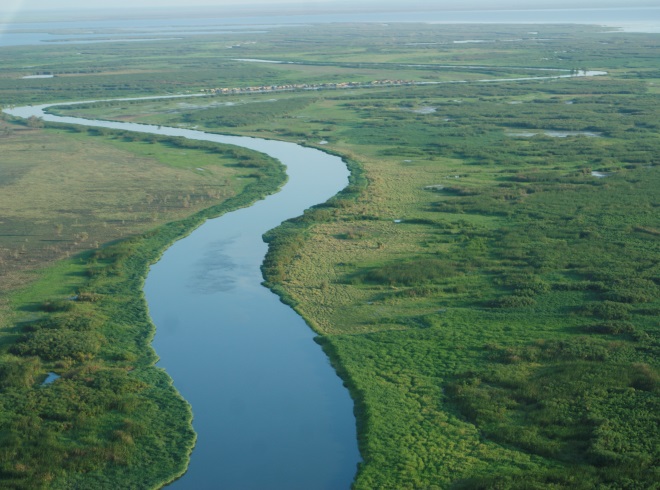This policy brief highlights the importance of the Kafue River Basin and provides key policy recommendations for improving water security in the basin. The brief stems from the Kafue Flats Water Security Dialogue that was held in Mazabuka in 2015. It is aimed at government decision-makers, business operators and non-governmental organisations that are interested in and/or affected by the sustainable future of the basin. It has been prepared under the auspices of the International Water Security Network and WWF Zambia.
Importance of the Kafue River Basin

The Kafue River Basin is considered of great importance to international, national and local interests. These interests are expressed through various socio-economic endeavours such as water supply, hydroelectric power generation, irrigation, livestock production, farming, tourism and conservation.
Water is an important factor in many of the productive activities that take place on the Kafue Flats. It affects developments options and the proper functioning of the floodplain. While these interests play significant roles in the national economy and in the lives of the local people, the quantity, quality and flow of the water on the Kafue Flats continues to be negatively affected by some of these socio-economic activities. Ensuring that the quantity, quality and flow of water are of acceptable standard is central to achieving water security.
The delegates at the Water Security Dialogue reaffirmed the importance of the Kafue River Basin in ensuring economic viability and ecological sustainability. They observed that achieving basic water security for societal needs and resilient ecosystems in the basin is of major national and local priority. In that regard, the delegates endorsed and supported the notion of having ongoing water security dialogue for the Kafue Flats.
Policy recommendations
At the end of the dialogue, the following policy recommendations were tabled as action points to take forward the water security agenda on the Kafue Flats:
- Intervention specific projects: Need for intervention specific projects that directly tackle catchment degradation, e.g. heavy metal pollution, Invasive Alien Species (IAS), monitoring water quality and quantity on the Kafue River. This will ensure maximum utilization of resources and a step-by-step approach to reversing environmental degradation on the Kafue Flats.
- Improving water security: Improving water security will require significant investments in institutions and infrastructure for meaningful progress to be made. Opportunities for successful investments in water security projects will largely be contingent on strong commitment and dedication from the concerned parties.
- Need to complement existing efforts: To prevent re-inventing the wheel, it was recommended that any collaborative efforts going forward must build on existing institutions and efforts by other stakeholders.
- Research and Information sharing: In order to take advantage of the developments at Water Resources Management Authority (WARMA), research and sharing of information was noted as a critical aspect of collaboration on the Kafue Flats. Publications in the form of reports, policy briefs and bulletins will be used as options for feeding into WARMA’s decision-making processes. It was agreed that as a first step, the recommendations from the dialogue would be shared with WARMA in a summarised and concise form.
- Establishment of stakeholder platform: It was recommended that a platform for stakeholders on the Kafue Flats be established. This would allow for pooling of resources among stakeholders. Representatives from the private sector noted their willingness to participate in such an initiative, more especially if it would assist the sector to comply with environmental regulations. It was recommended that regulatory institutions such as Zambia Environmental Management Authority (ZEMA) will be part of such processes. It was agreed that WWF Zambia Country Office facilitates the setting up of the platform. There will be need to explore how this platform can be established not as a standalone entity, but be aligned with the WARM Act.
